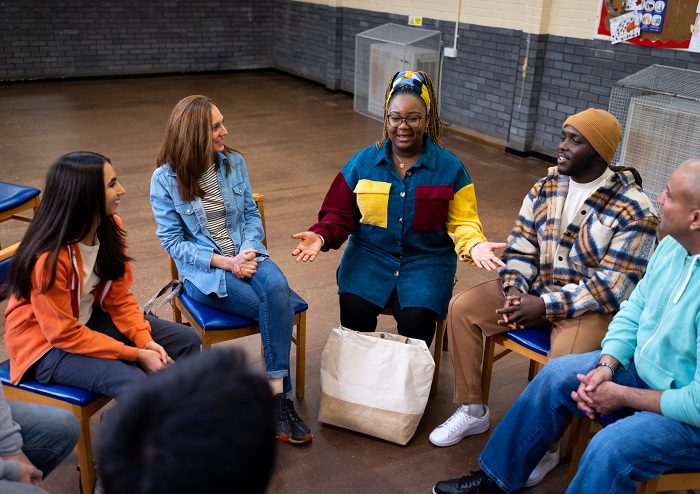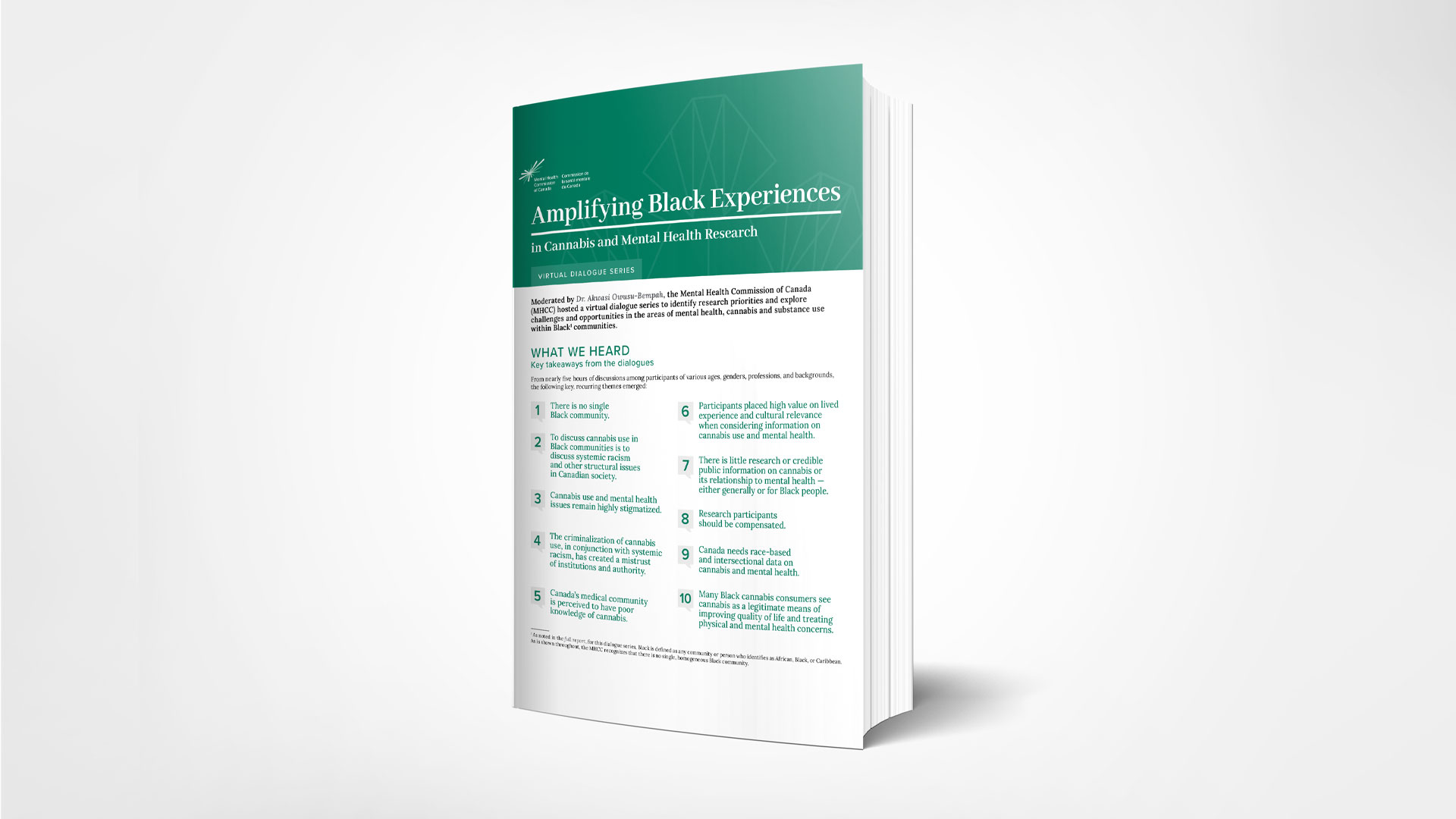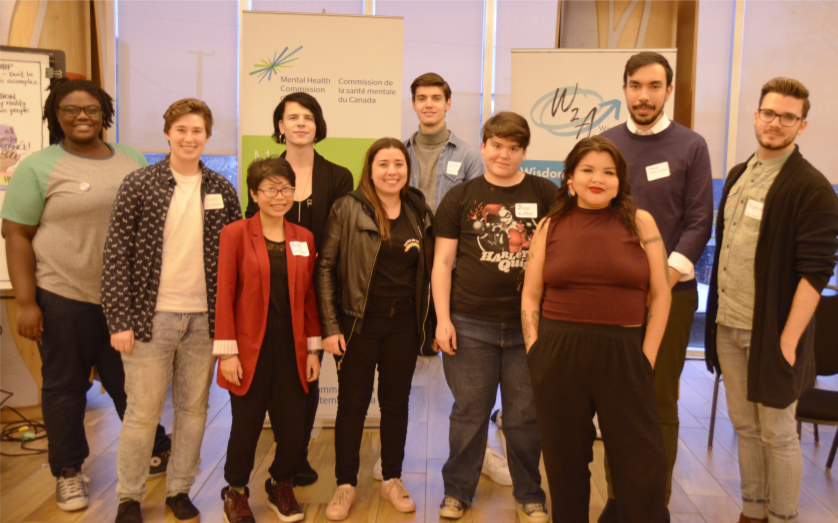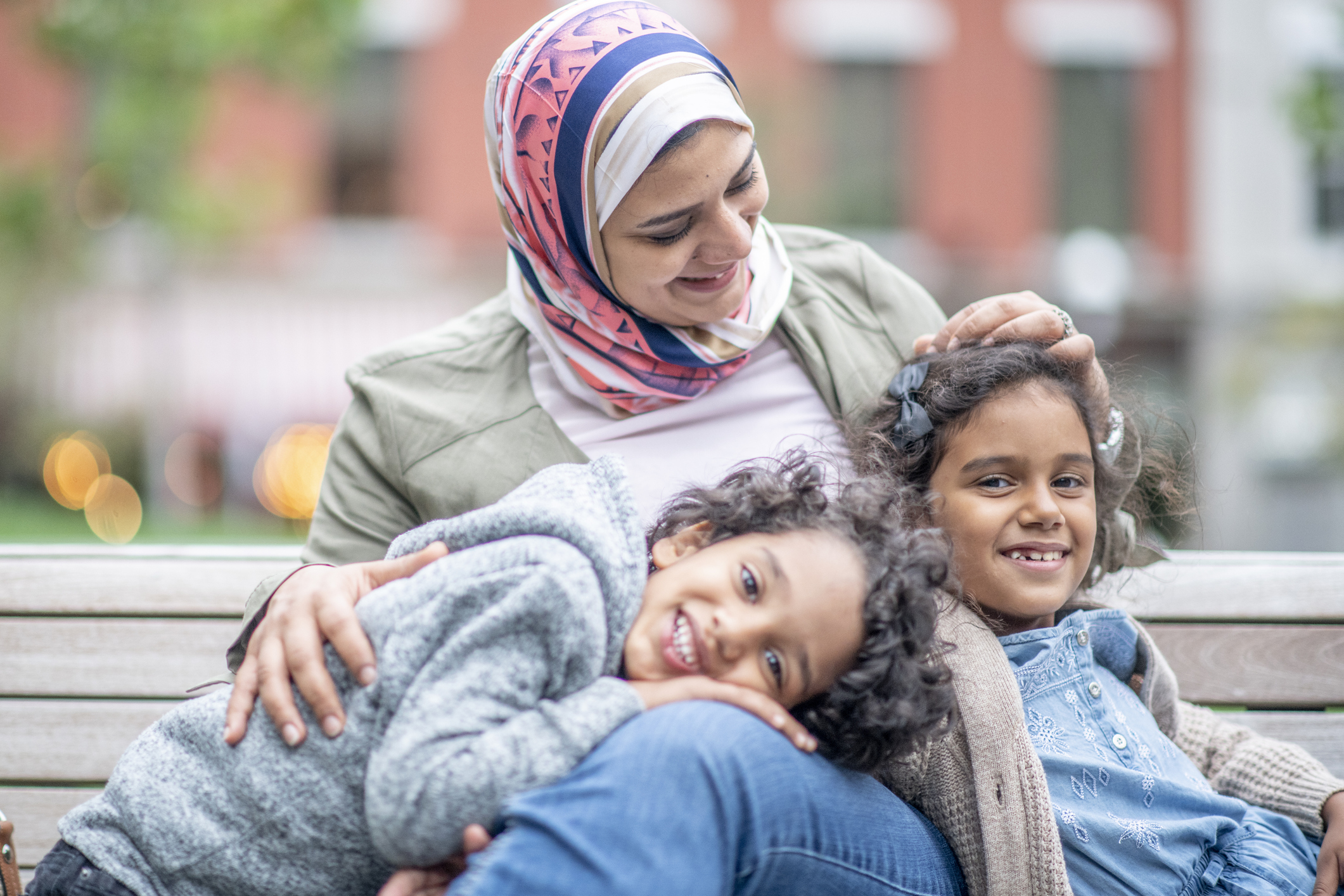Home › What We Do › Diversity
Diversity
What is the issue?
Canada is often defined by its diversity. Home to millions of people from different backgrounds and cultures, more than 200 languages are spoken across the country, with 20% of Canadians having a language other than English or French as their mother tongue. However, providing mental health services and supports to such a diverse population can be challenging.
Responding to the Diverse Needs of Immigrant, Refugee, Ethnocultural and Racialized (IRER) Populations in Canada
Immigrants, refugees, and members of distinct ethnocultural groups can experience discrimination, language barriers, and a sense of displacement. These factors can greatly affect a person’s wellbeing and prevent awareness of available mental health services and supports. As a result, many people do not seek treatment for a mental health problem or mental illness right away. When they do, their cultural background may lead them to describe the problem in ways that are unfamiliar to service providers, which can cause misunderstanding.
To support Canada’s diverse population, mental health services need to be more accessible to all Canadians and complemented by better coordination between policy and research-based evidence. The needs of some ethnocultural groups can be met by expanding existing services; in other cases, new approaches will be necessary. This work requires the greater involvement of communities, families, and people who have lived experience of a mental health problem and mental illness in planning appropriate as well as improved services and approaches.
What are we doing?
The MHCC’s Mental Health Strategy for Canada identifies better services for the country’s diverse populations as a priority for improving the mental health system. Through key initiatives, the MHCC has contributed to the Canadian literature on improving mental health services for immigrant, refugee, ethnocultural and racialized populations. A recently released report, “Immigrant, refugee, ethnocultural and racialized populations and the social determinants of health – A Review of the 2016 Census Data”, highlights select sociodemographic trends and issues related to IRER mental health and well-being.
Supporting immigrant, refugee, ethnocultural, and racialized populations
Culturally Adapted Cognitive Behavioural Therapy for Canadians of South Asian Origin[1] is a research project that set out to develop and test a new, specialized form of psychotherapy for South Asians in Canada who are affected by anxiety and depression. Its goals were to offer culturally adapted cognitive behavioural therapy, evaluate whether participants found the treatment feasible and acceptable, and create a training package to enable providers to offer it to the community. Read our two-page backgrounder for more details.
[1] For this project, the term Canadians refers to individuals residing in Canada, including those without citizenship status.
What have we learned?
The 2009 Issues and Options report identifies five action areas that demand collaborative effort:
- Prevention
- Inclusion
- Diversification
- Access; and
- Language
Building on the previous report, The Case for Diversity, released in 2016, makes a compelling case for the social and economic significance of responding to the needs of IRER populations, providing policy makers and system planners with evidence about current mental health disparities, practices of interest, and the cost savings associated with closing the gap.
Resources
The Mental Health Commission of Canada (MHCC) created a number of resources to support the mental health and wellness of immigrants, refugees, and distinct ethno-cultural groups across Canada. Click on the links below for more information.








